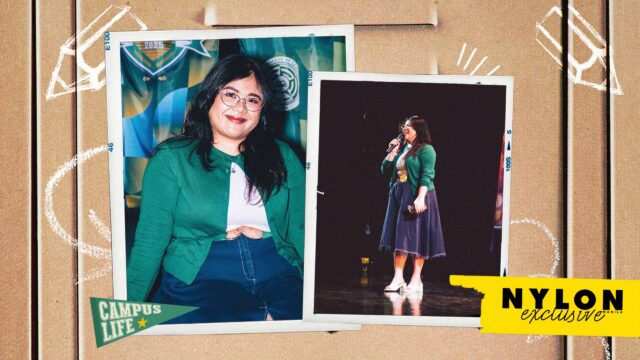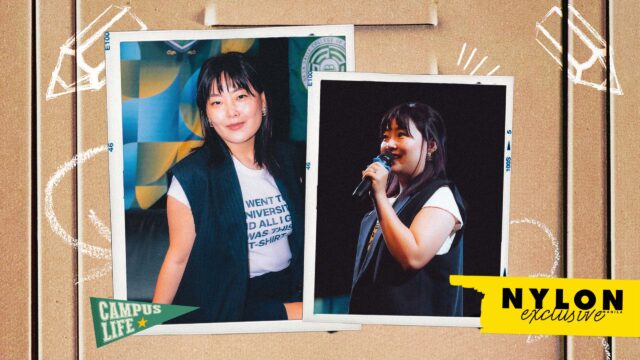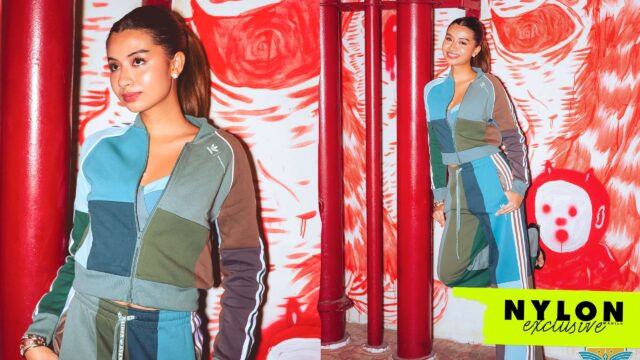Turning passion into power, Janlee Dungca and Mela Habijan are encouraging and empowering the beautiful trans narrative further in the Filipino context.
As mundane as it may seem, especially in these days when our technological appendages are constantly buzzing with updates, notifications, and truncated messages, there isn’t anything more beautiful than a simple conversation that reveals itself to be profound, cutting through the current of consciousness with an indelible imprint of ideas, information, and inspiration. It is no coincidence either that we have been having more of these as of late, both entertaining and enlightening in the pandemic-challenged turn of our history. More often than not, it starts off as ordinary as possible, like a message typed in the wrong window or in this case, a case of the peanut butter. And then before you know it, you are navigating activism and the queer reality in the Philippines, treading through the transgender experience, and eventually making it to a clearing of clarity in communication for the LGBTQIA+ movement. But we are getting ahead of the story.
“People were asking me if I wanted to share my story, and then I thought, why should I be selfish about it?” begins Janlee Dungca, PR Director of a visibly inclusive communications agency, as well as a gender rights and HIV/AIDS awareness advocate, when recounting her genesis from transitioning to advocacy and activism. “It was never my intention to be at the forefront, but I somehow found myself here and I wanted to make it matter.” Meanwhile, for Mela Habijan, an actress, host, educator, LGBTQIA+ advocate, and Miss Trans Global 2020, activism started as a desire to reclaim her space, which was held back so long by fear. “’Yun ‘yung nag-hinder sa akin why I didn’t transition,” she says. “I wanted to share that story, that the journey to my womanhood, though it may have been long, is valuable.”
Trans Women Are Women
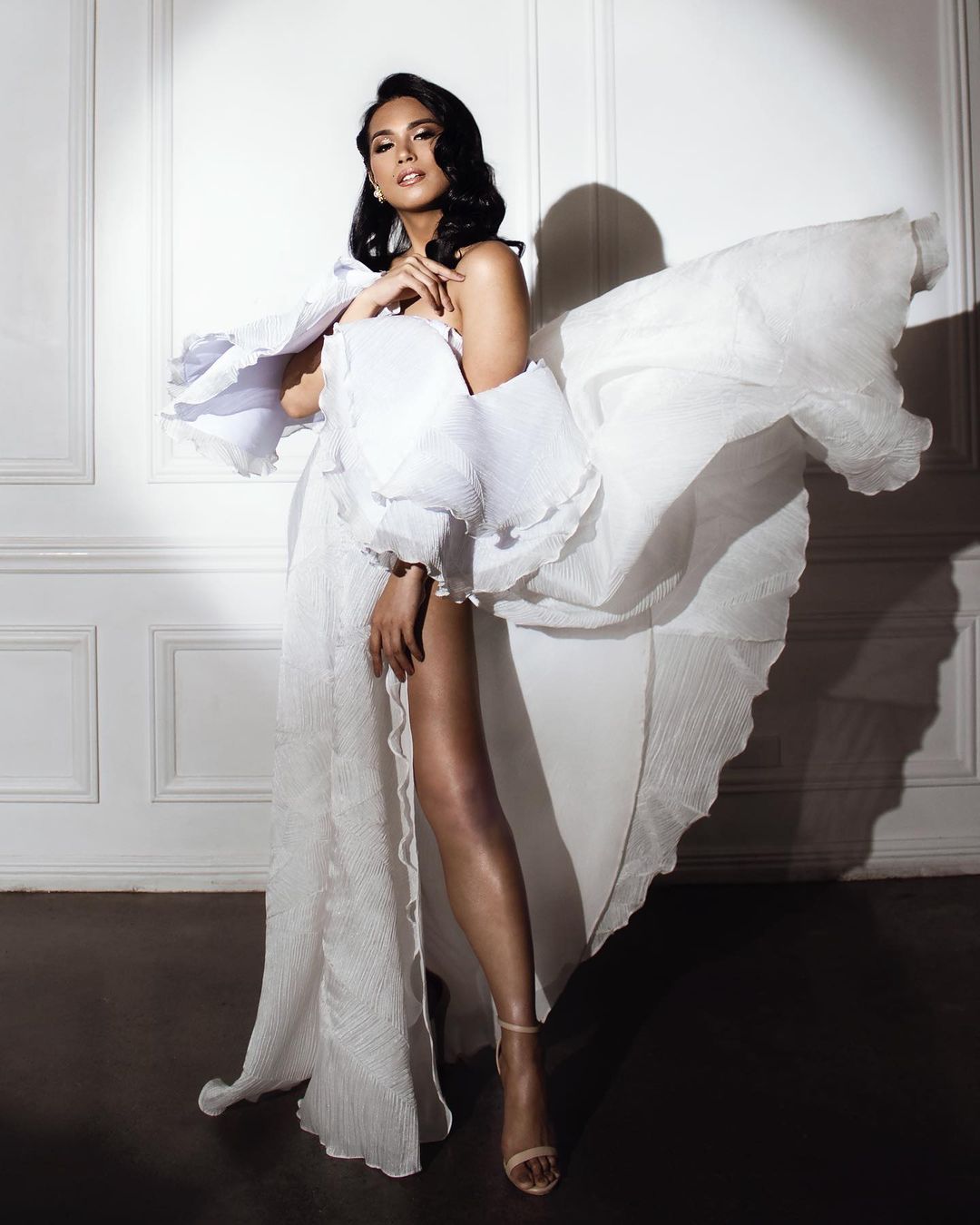

On their own and accord, and often together, Janlee Dungca and Mela Habijan have slowly stepped into the spotlight, owning up to the platform that they have been given as rich wells of resource for the truth about the often waylaid trans narrative. “We’re already given the platform, so it is our responsibility to use it effectively. It is much better to use a platform for the benefit of your community instead of just the self,” explains Janlee Dungca. “There are a lot of trans women in the Philippines and the world, but not everyone is given the opportunity to educate others. For me, it’s how one responds to the call, because not everyone will take it responsibly.”
With the voice they have been given and in the stages they find themselves in, Janlee Dungca and Mela Habijan are always taking things a step further, striking discourse and dialogues not just within their social circles and echo chambers, but to a greater scope of the community as well. From talking about their advocacy work in many talks online and in academic parameters, they also have been furthering the discussion in corporate settings when they give SOGIE conferences or consciously leveraging their positions in media and entertainment to open the lines of communication about being trans most especially.
Their most recent project includes FACT U (short for Fact University), an online show that airs on the Spaces MNL Facebook page. In this endeavor, the goal is to cultivate a safe online space for and by LGBTQIA+ people every Monday night that corrects misinformation on and educates the public about social issues relevant to the community.
“It is important to always elevate the conversation. Meron naman ng awareness ang public about the transgender experience, pero hindi enough na alam lang nila. Kelangan mapapalim pa ‘yung pag-unawa nila,” offers Janlee. “Hindi nila nauunawan how it exists, and that motivates me to learn about it more and educate other people,” continues Mela Habijan who has also entrenched herself in the world of beauty pageants. “’May iba pang perspektibo sa buhay, and ‘yun ‘yung gusto naming ipamana sa ibang transgender women na sinasabi nila na wala silang boses or nahihiya silang magsalita or takot sila lumaban, kasi sa totoo lang, sa iba’t ibang transgender na nakilala ko, iba pa rin ang mindset nila.”
Studying The Spectrum
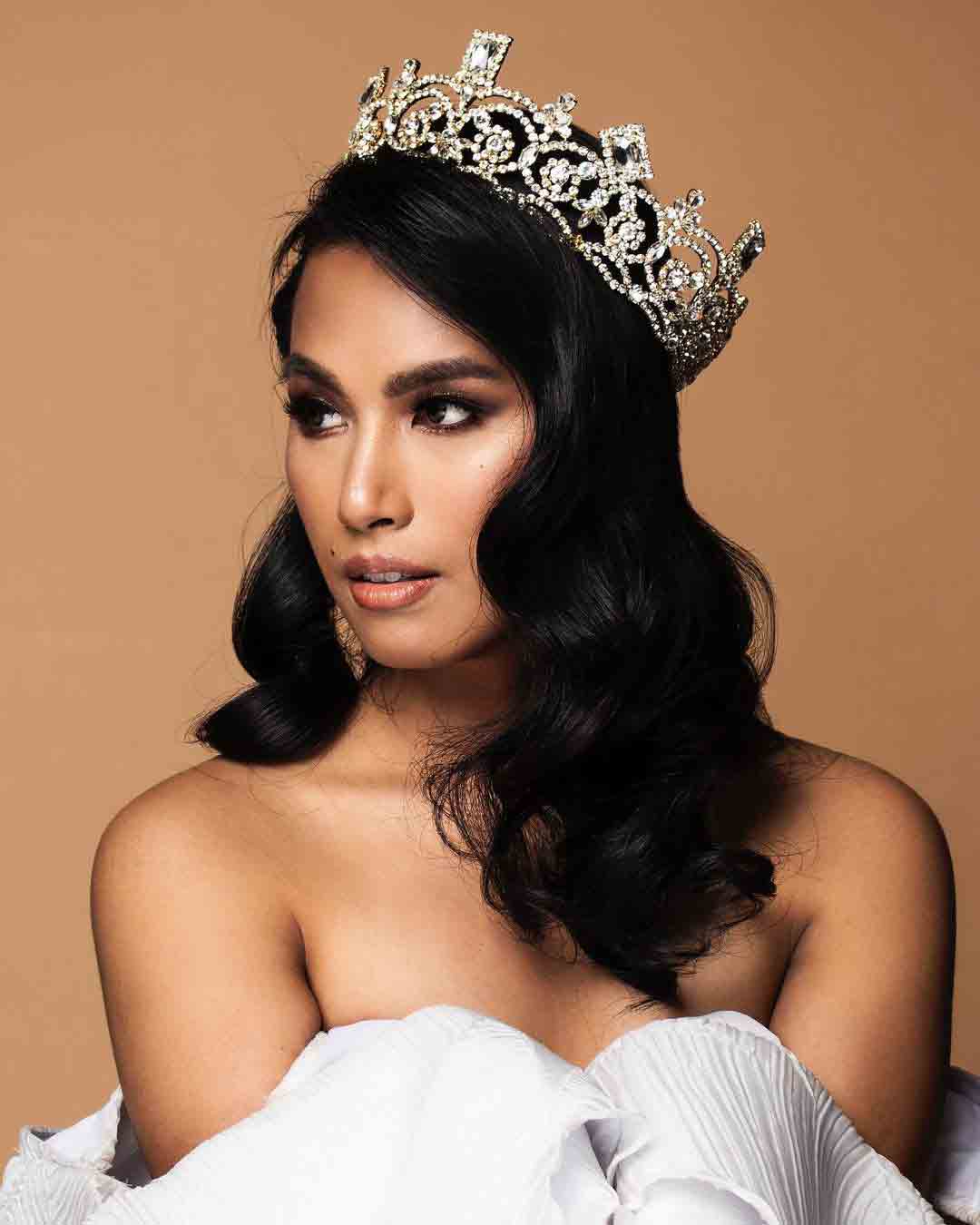
This has been a fiercely debated hot-button issue that has been subject to an almost microscopic examination especially as of late. “Maraming ganun ang mindset and nakakalungkot ‘yun, but will we stop reaching out? No, because this isn’t just for us. It’s not a selfish battle, but a battle of the community. Siguro ang pinakamahirap lang talaga is kapag nakikita mo na hindi pa solid ang community, mas mahirap siyang laban. Kaya as much as possible, we even educate ourselves, because personally, I still don’t know a lot of things, and ngayong nabigyan ako ng boses, I will use that platform to communicate our struggles and battle,” details Mela. “How will you make use of the platform given to you in maximizing and strengthening the community as well?”
The reason why Janlee Dungca and Mela Habijan have taken it upon themselves to serve as arbiters of the spectrum, especially for the trans community, is primarily because when the fragmented and misinformed way of thinking by key figures in the community being put on the pedestal find its way into the status quo, it becomes a danger in itself. Where the cracks eventually meet a breaking point, the progress that has been long toiled for is stalled, and worse, regressed to an almost irrevocable state. “We have different backgrounds, we experience different things, we have different contexts, so ‘yung differences na ‘yun will entail different understandings and different manners of interacting with one another,” assures Mela, which Janlee agrees with and goes into delightful detail.

“It all starts with the self. It’s very important to know yourself, know who you are, so that no matter who you meet or whatever people throw at you, you won’t be damaged. It’s important to have the willingness and the desire to learn. Mahirap yung sinara mo na ‘yung sarili mo when in fact, you can learn from other people,” she says. “Kasi napaka masalimoot ng pinanggagalingan ng Pilipino. Lagi ko ngang sinasabi when I talk about SOGIE and gender equality, lahat ito nanggaling sa pananakop ng mga Kastila at Amerikano na in-introduce nila ang patriarchy sa pamamagitan ng religion at hindi tayo mulat diyan, lalo na yung normal na Pilipino. Kasi kung ano ‘yung hinain sa kanila, ‘yun na lang ang kakainin nila, hindi naman nila hihimayin. Kaya napakahalaga na alamin ‘yung pinagmulan natin not just with ourselves, but as a people, kasi nawala yung sarili nating pagkakakilanlan.”
Empowering The Trans Narrative
More than that, gender equality is also an ever-evolving educational process that isn’t bound by absolutism. “It’s years of continuous deconstructing and unlearning, and learning of new things that isn’t bound by what we are used to,” says Janlee Dungca. “That’s what I want to teach people, that is admittedly so hard to do. But that’s just how it is, you have to be patient and kind, because whoever we meet is a potential ally in this fight—we just have to make them understand that.” However, one must be reminded that not everyone is as privileged to be made aware in the way that we have grown accustom to, Mela reminds us, which is why the rest of the community doesn’t fully understand why there is a problem and that it affects their existence fundamentally. “Mahalaga na iparamdam natin sa kanila bakit ka apektado sa pinaglalaban. Nagiging issue of the elite kasi siya,” she reasons.

This proposition is that it doesn’t just limit itself to the LGBTQIA+ consideration. Being mindful of identities and realities, there exists a focus of introspection that makes you expand yourself as a human being. “It’s a matter of empowering them, because the way we were raised, it has always been, is this where it all ends? Am I really happy? Am I contented or am I just settling?” Janlee wonders, focusing her lens on the nuanced transgender existence. “We have to make them understand that they can be greater than where they currently stand, and hopefully, they realize this and are compelled to join the fight for equality.”

For Mela Habijan, it is about opening herself up to listening to strangers, and hearing out their stories. “Kasi iba pag nakipagkwentuhan ka sa kanila—meron at meron kang madi-discover. It’s very important for us to understand the context that they’re in. Instead of makinig lang sila sa’yo, pakinggan din natin sila: Ano ba ang gusto nila ipaglaban? Ano ‘yung mga struggles nila? Ano ‘yung mga bagay na hindi natin nakikita? Baka may gap na hindi nafi-fill up in the context of pride na sana we can bridge,” she muses.
The Advocacy Matters More Now
Taking inclusion to kinder heights, she and Janlee Dungca are redefining what it means to be activists and advocates in this day and age. “Ang journey mo parati, hindi nag-e-end sa ilabas mo ang pagiging babae mo, dapat bigyan mo ng meaning ang pagiging babae mo,” Mela asserts. “Totoo, at mahalaga ang concept of paying it forward na ibinabalik natin yung kabaitan na binigay sa atin,” says Janlee. “Kaya ako, as an advocate, ‘yun ‘yung basic principle ko sa kahit sino dahil babalik ‘yung kabaitan na ‘yun in another form.”
Before we knew it, our pocket of passionate discussion, a mostly serious one punctured only exhales of repartee, clocked in at a little under an hour, which drew a collective disbelief, especially since it didn’t feel like that span of time has passed with the breadth of humanity we have managed to unravel. There lies the beauty of conversation that hinges on listening and understanding. It will begin somewhere off-kilter, but eventually, it ends up where it needs to be, and in this case, it is a deeply insightful crack at humanity and identity.



